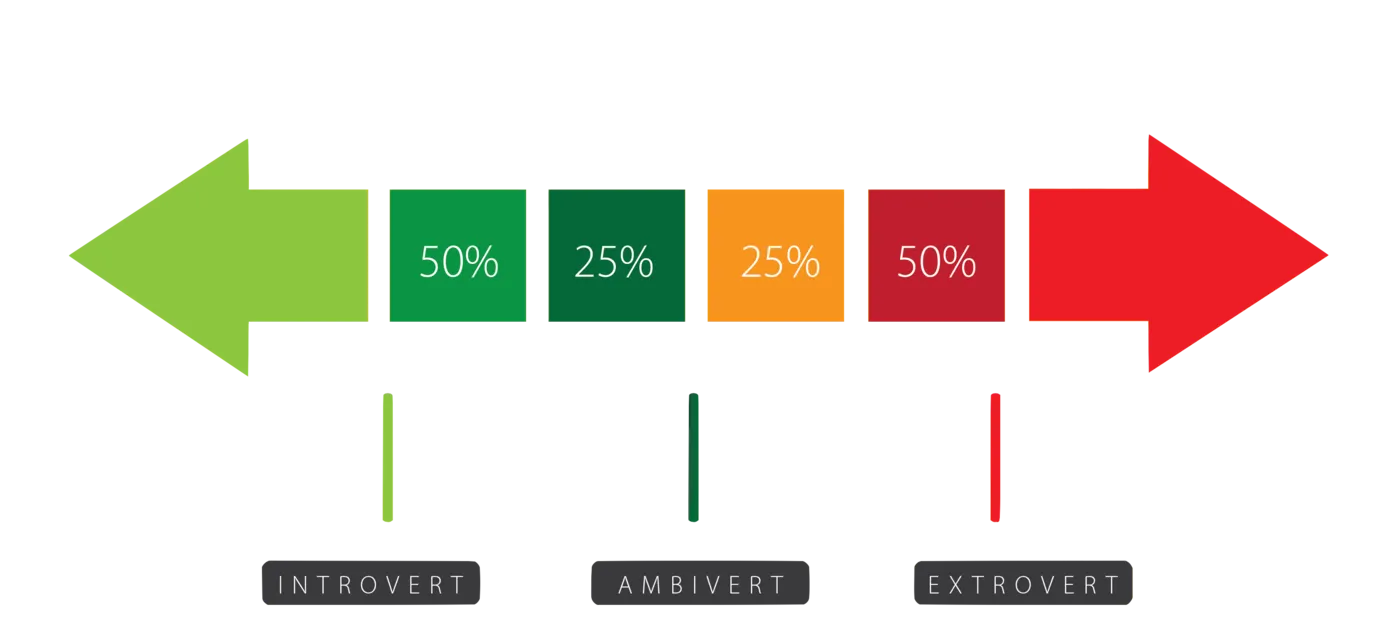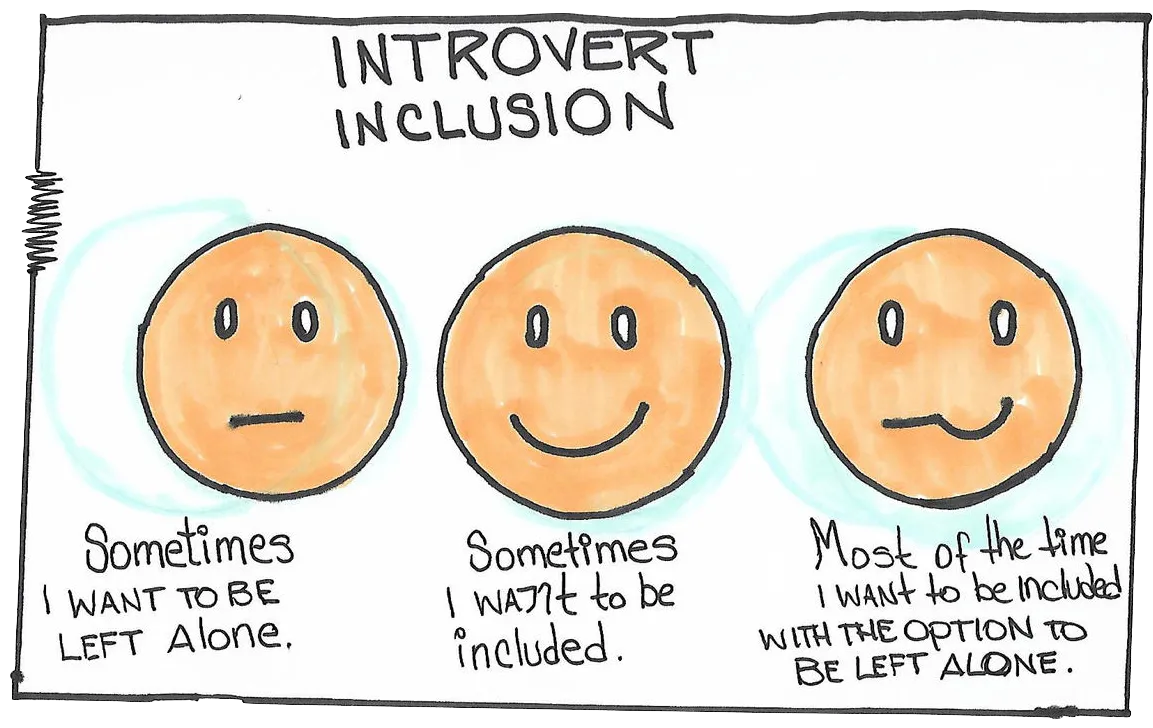Introversion has been a popular term in the pop culture since the past few years. While there is a wealth of information and resources available on introversion, understanding and dealing with this trait can still feel overwhelming or confusing.
In this article, I aim to simplify and distill some of the key principles of introversion, and share few tips for living and working with this personality trait, I have learnt and come across.
Introversion
Introversion is a personality trait characterized by a preference for solitude and a decreased need for social stimulation. While there is nothing inherently wrong with being introverted, it can sometimes pose challenges in certain situations, such as networking events, job interviews, or social gatherings.
Introversion is a spectrum

Introversion Spectrum
Introvert - Extrovert is a spectrum. Nobody is pure extrovert or introvert, we all fall somewhere in between.
Labeling ourselves with one way or the other is counterproductive as we are very good in pattern matching and we see what we want to see. It is difficult to go away from labels.
Introversion, Shyness and Low Esteem
Shyness and introversion are often used interchangeably, but they are actually two distinct traits that can coexist or occur separately in an individual.
Shyness
Shyness is a feeling of discomfort, nervousness, or self-consciousness that arises from a fear of social judgment or criticism. Shy individuals tend to avoid social situations or feel anxious when they are in them, but this behavior is usually a result of a lack of confidence or insecurity.
Introversion
Introversion, on the other hand, is a personality trait that describes a person’s preference for solitude and quiet environments. Introverts tend to feel drained or overwhelmed in social situations, and they need time alone to recharge their energy.
Low Esteem
Low self-esteem refers to a negative perception of oneself, where individuals may believe that they are not good enough, smart enough, or attractive enough. These negative beliefs can lead to feelings of anxiety, shame, or self-consciousness, which can be particularly heightened in social situations.
Similar behaviour, different causes
While shyness and introversion can both lead to similar behaviors, such as avoiding social situations or feeling anxious in groups, they stem from different sources. Shyness is more of a response to social anxiety, whereas introversion is more of a preference for solitude and reflection.
It’s also worth noting that shyness is considered to be more of a temporary or situational trait, while introversion is seen as a more enduring and stable aspect of a person’s personality.
Introvert Inclusion

Introversion Inclusion
How to embrace Introversion
Here are some tips for navigating and thriving with introversion:
Accept yourself: First and foremost, it’s important to accept that being introverted is a natural part of who you are. Don’t try to change yourself to fit someone else’s idea of what “normal” looks like.
Find your
strengthscharacteristics: Being introverted doesn’t mean that you lack social skills or that you’re not good at communicating. You may find that you’re particularly adept at writing, listening, or building deep connections with others.Create a comfortable environment: If you’re in a social situation that feels overwhelming, try to create a comfortable environment for yourself. Find a quiet corner where you can take a break, or bring along a friend or a book to help you feel more grounded.
Set boundaries: It’s okay to say no to social invitations or to limit the amount of time you spend in large groups. Be clear about your needs and boundaries, and don’t feel guilty for taking care of yourself.
Practice self-care: Taking care of yourself is essential for anyone, but it can be particularly important for introverts who need time to recharge. Make sure you’re getting enough sleep, eating well, and engaging in activities that bring you joy.
Seek support: It can be helpful to connect with others who share your experiences. Consider joining a support group or seeking out online communities where you can connect with like-minded individuals.
Remember, there’s no “right” or “wrong” way to be in the world. Embrace your introversion, and find ways to thrive in your own unique way.
